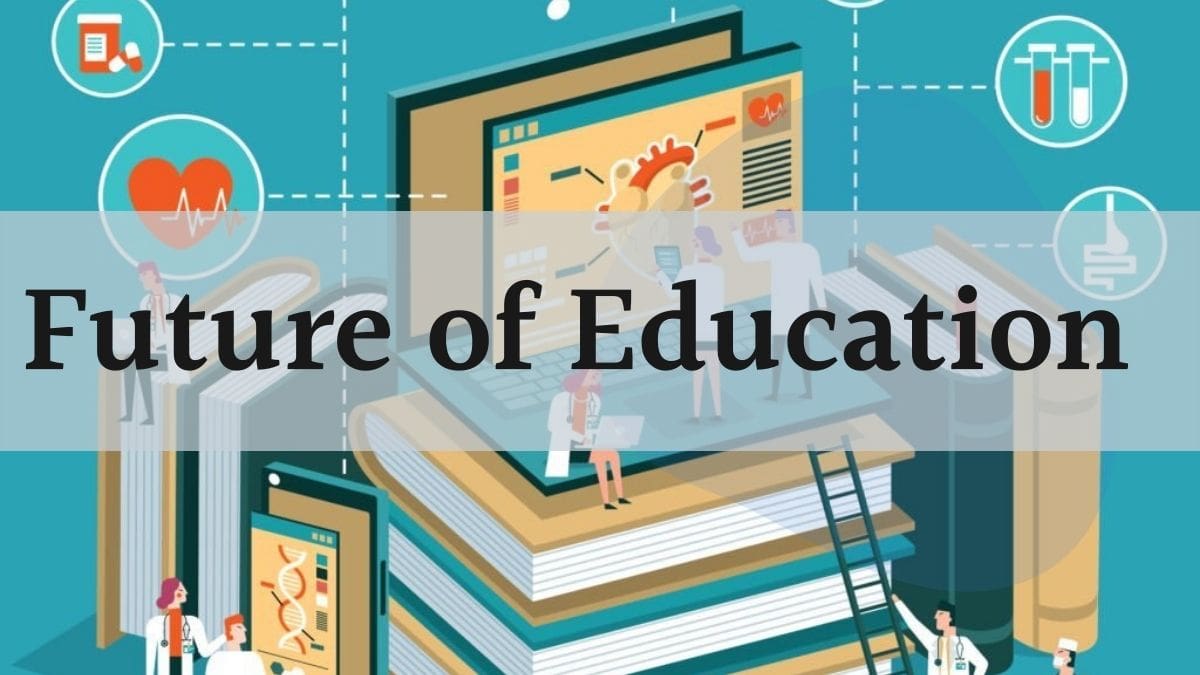Education is evolving at an unprecedented pace, transforming how students learn and how teachers instruct. With rapid technological advancements and shifting societal priorities, the education sector is undergoing significant changes. Staying informed about these developments is not just about anticipating the future—it’s about being prepared for it. Below, we explore the key trends shaping the future of education.
Technology-Driven Learning
Technology is at the heart of modern education, redefining how knowledge is delivered and received.
Artificial Intelligence in Education
AI is revolutionizing education by offering personalized learning experiences. AI-powered platforms analyze individual student strengths and weaknesses, tailoring lessons accordingly. For example, AI tutoring systems can provide real-time feedback, aid in problem-solving, and reinforce difficult concepts, enabling teachers to focus on more complex teaching tasks.
Virtual and Augmented Reality
Imagine exploring ancient Rome or examining the human body in 3D—all within a classroom setting. Virtual and augmented reality create immersive learning experiences that engage students while simplifying complex concepts. These technologies bring lessons to life through realistic simulations.
Gamification of Education
Learning doesn’t have to be dull. Gamification incorporates game elements like points, badges, and leaderboards to motivate students. Popular platforms like Duolingo and Kahoot demonstrate how gamification boosts engagement, focus, and information retention.
Hybrid and Blended Learning Models
The pandemic has accelerated the shift toward hybrid learning, which combines online and in-person education.
Flexibility in Learning Schedules
Hybrid models allow students to learn at their own pace, offering flexibility that accommodates diverse learning styles. This approach enhances comprehension and retention by catering to individual needs.
The Rise of MOOCs
Massive Open Online Courses (MOOCs) make quality education accessible to anyone with an internet connection. These affordable courses, often provided by top institutions, help individuals upskill and pursue their passions regardless of location or background.
Lifelong Learning and Upskilling
As the job market evolves, continuous learning has become essential.
Emphasis on Continuous Education
The concept of “learn once, work forever” is obsolete. Professionals now need to continuously update their skills. Micro-credentials and certifications are gaining popularity as a way to acquire specialized knowledge efficiently.
Corporate Partnerships in Education
Companies like Google and Microsoft are partnering with educational institutions to provide skill-based training. These collaborations bridge the gap between academic learning and workforce demands, preparing students for employment.
Personalized Learning Experiences
Education is moving away from one-size-fits-all approaches.
Data-Driven Insights
Educational platforms leverage data analytics to monitor student progress and suggest personalized improvements. This enables educators to adjust teaching methods to meet individual needs effectively.
Adaptive Learning Platforms
Platforms like Khan Academy and Edmentum adapt content dynamically based on student performance. This ensures a tailored learning experience that supports each student’s unique journey.
Shift Toward Competency-Based Education
Education is focusing more on skill mastery than traditional grading systems.
Measuring Skills Over Time
Competency-based education evaluates students’ mastery of skills over time rather than relying solely on exams. This ensures a deeper understanding of concepts.
Preparing Students for Real-World Challenges
Project-based learning provides hands-on experience, equipping students with critical thinking and problem-solving skills that are vital in the workforce.
Inclusivity and Equity in Education
Creating an inclusive and equitable education system is a growing priority.
Accessibility for All
Technology is removing barriers for students with disabilities. Tools like text-to-speech software, screen readers, and assistive devices ensure that everyone can participate in learning. Virtual classrooms also reduce mobility-related challenges.
Reducing Socioeconomic Barriers
Initiatives such as free online resources, scholarships, and affordable technology aim to level the playing field, ensuring students from underprivileged backgrounds have equal opportunities.
Focus on Mental Health and Well-Being
Modern education recognizes the importance of addressing students’ emotional and mental well-being.
Importance of Emotional Intelligence
Schools are introducing emotional intelligence (EI) training, helping students develop empathy, self-awareness, and interpersonal skills for navigating social complexities.
Wellness Programs in Schools
From employing trained counselors to organizing mindfulness sessions, schools are prioritizing mental health to combat stress and burnout among students.
Sustainability in Education
Educational institutions are addressing global environmental challenges.
Green Campuses and Practices
Many schools are adopting eco-friendly practices, such as using solar panels and implementing recycling programs. These initiatives teach students sustainability through action.
Environmental Education
Curriculums now include topics like climate change, renewable energy, and conservation. Educating students on these issues prepares them to contribute to a sustainable future.
The Future of Educators
While teachers remain central to education, their roles are evolving.
Teacher Training for the Future
Educators must adapt to new technologies, including AI tools and virtual classrooms. Training programs ensure teachers remain effective and tech-savvy.
Collaborative Teaching Models
Collaboration among educators fosters innovation. By co-developing curriculums and sharing resources, teachers can provide students with a holistic education.
Globalization of Education
Globalization is expanding the reach of education beyond borders.
Cross-Cultural Learning
Exchange programs and diverse curriculums expose students to new perspectives, preparing them for an interconnected world.
Digital Classrooms Without Borders
Digital platforms enable collaboration among students and teachers across continents. These virtual interactions promote global community building and cultural understanding.
Challenges to Overcome
Despite its promise, the future of education presents challenges.
Bridging the Digital Divide
Not all students have access to technology or the internet, particularly in rural or economically disadvantaged areas. Addressing this gap is crucial for equitable education.
Cybersecurity in Education
As education becomes more tech-dependent, protecting sensitive student data is vital. Institutions must invest in robust cybersecurity measures.
Conclusion
The future of education is both exciting and demanding. From integrating cutting-edge technology to promoting inclusivity and sustainability, these trends will shape teaching and learning for years to come. To thrive in this evolving landscape, educators, students, and policymakers must collaborate to build an adaptable and forward-thinking education system.
FAQs
- What is the role of AI in education?
AI enhances personalization, provides instant feedback, and helps educators identify student needs through analytics. - How do hybrid learning models function?
They blend online and offline education, offering flexibility to meet diverse learning preferences. - What is competency-based education?
It emphasizes skill mastery over traditional grades. - Why is focusing on mental health important in schools?
Addressing mental health improves student well-being and academic performance. - How can educators prepare for these changes?
By upskilling, adopting new technologies, and collaborating with peers to innovate curriculums.





